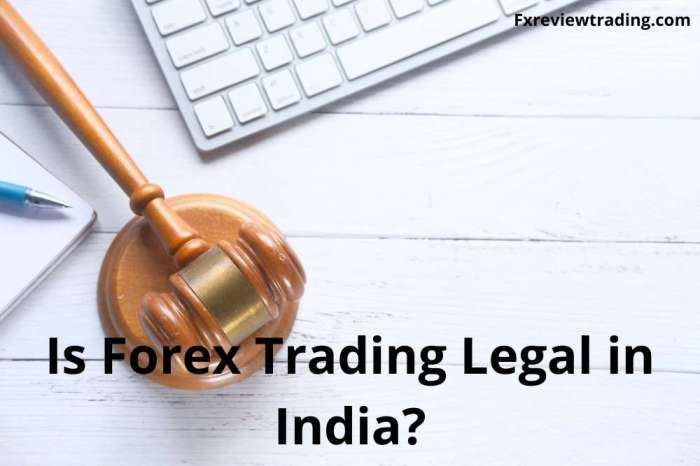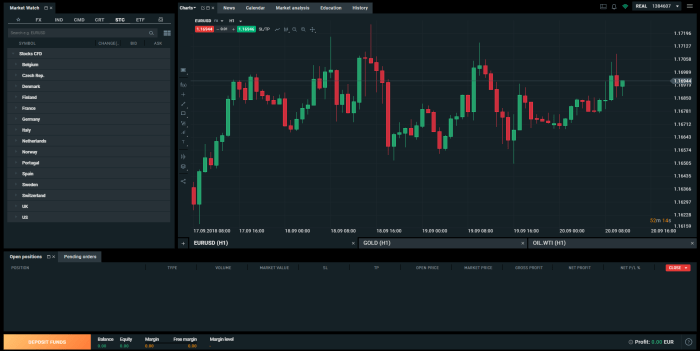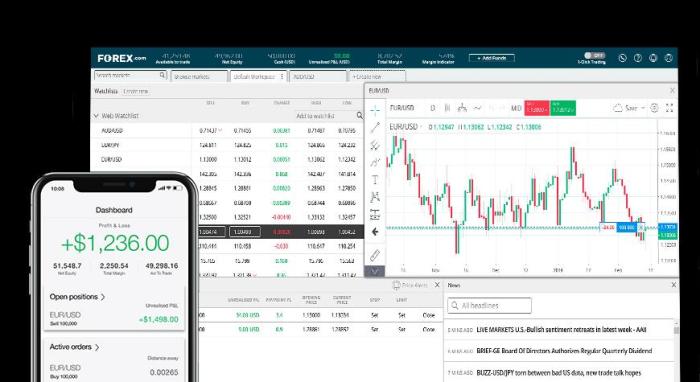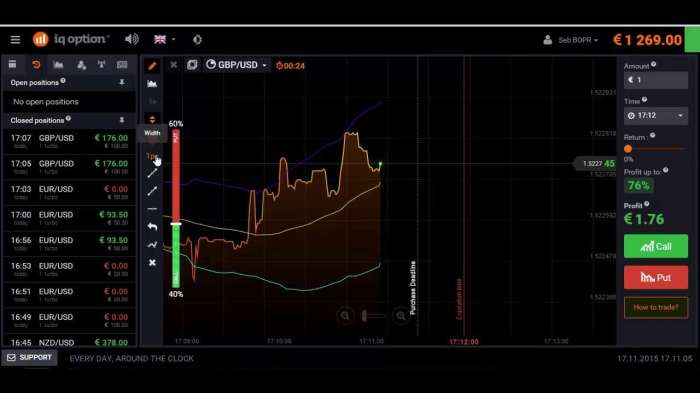
Is forex trading legal in us – Is forex trading legal in the US? The short answer is yes, but it’s a nuanced “yes.” Navigating the world of forex trading in the States means understanding a complex web of federal and state regulations, broker responsibilities, and, of course, the inherent risks. This isn’t your grandpappy’s stock market; forex trading operates on a global scale, meaning the rules of engagement are a little more…international. Let’s dive into the details to see if this high-stakes game is right for you.
The Commodity Exchange Act (CEA) is the cornerstone of US forex regulation, with the Commodity Futures Trading Commission (CFTC) acting as the enforcer. While forex trading is legal, it’s heavily regulated to protect investors from scams and shady practices. This means brokers need licenses, and traders need to be aware of their responsibilities. State laws add another layer of complexity, with variations in licensing requirements and restrictions on traders. So, while you can legally trade forex in the US, understanding the legal landscape is crucial for success (and avoiding hefty fines).
Legality of Forex Trading in the US at the Federal Level: Is Forex Trading Legal In Us
Forex trading in the US isn’t some shadowy, unregulated Wild West. While it might seem complex, the legal framework is actually pretty clear-cut at the federal level, primarily governed by the Commodity Exchange Act (CEA) and overseen by the Commodity Futures Trading Commission (CFTC). Understanding this framework is key to navigating the world of legal forex trading in the United States.
The Commodity Exchange Act (CEA) is the cornerstone of US commodities regulation, and it casts a wide net over forex trading. Essentially, the CEA aims to promote fair and transparent markets, protect investors from fraud and manipulation, and maintain the integrity of the financial system. Because forex involves the buying and selling of currencies – commodities themselves – it falls under the purview of this Act. This isn’t to say *all* forex activity is strictly regulated; there are exemptions, but the underlying principle is that the CEA sets the stage for overseeing the forex market’s fairness and stability.
The Commodity Futures Trading Commission’s Role in Regulating Forex Markets
The CFTC is the primary federal agency responsible for enforcing the CEA as it relates to forex. Their role is multifaceted, encompassing oversight of forex brokers, dealers, and exchanges. They monitor trading activity to detect and prevent market manipulation, fraud, and other illegal practices. The CFTC also establishes regulations concerning the financial soundness of forex market participants, ensuring they have sufficient capital reserves to weather potential market downturns and protect customer funds. Their regulatory power extends to investigating potential violations, imposing sanctions on wrongdoers, and promoting transparency within the forex market. This proactive approach helps maintain a level playing field for all participants.
Examples of Legal Forex Trading Activities Under CFTC Jurisdiction
Legal forex trading activities typically involve transactions executed through registered Futures Commission Merchants (FCMs) or retail forex dealers registered with the National Futures Association (NFA), a self-regulatory organization overseen by the CFTC. For example, a US citizen placing a trade through a registered forex broker, adhering to all applicable regulations and disclosures, is engaging in a perfectly legal activity. Similarly, a large institutional investor hedging its foreign currency exposure through a registered FCM is also acting within the bounds of the law. These activities are deemed legal because they operate under the regulatory framework established by the CFTC and comply with the stipulations of the CEA.
Exemptions and Exclusions Related to Forex Trading Within the CEA, Is forex trading legal in us
The CEA does contain certain exemptions and exclusions that affect forex trading. One significant exemption relates to “bona fide hedging transactions.” This allows businesses to legitimately use forex to mitigate their exposure to foreign currency risk, without being subject to the full weight of CFTC regulations. The precise definition of “bona fide hedging” is complex and requires careful consideration of the specific circumstances. However, it generally involves transactions undertaken to offset existing foreign currency commitments rather than for speculative purposes. Another area of exemption often centers around transactions executed solely between large financial institutions (e.g., banks). These transactions often occur on an interbank market, which operates with a different level of oversight compared to retail forex trading. These exemptions acknowledge the unique needs of different market participants while maintaining the overarching goal of market integrity and investor protection.
State-Level Regulations and Forex Trading
While forex trading is legal at the federal level in the US, the regulatory landscape becomes more nuanced at the state level. Each state possesses the authority to enact its own laws impacting businesses operating within its borders, and this includes forex brokers and the individuals who trade on these platforms. The variations in these regulations can significantly affect both the accessibility and the operational aspects of forex trading for residents of different states.
State-level regulations concerning forex trading primarily focus on the licensing and registration of forex brokers operating within a state’s jurisdiction. Some states have more stringent requirements than others, impacting the number of brokers offering services and potentially limiting trader access to certain platforms. This fragmented regulatory approach can lead to inconsistencies and complexities for both brokers and traders navigating the forex market across state lines.
Variations in State Licensing Requirements for Forex Brokers
The licensing requirements for forex brokers vary considerably across states. Some states require forex brokers to obtain a specific license to operate within their borders, while others may rely on broader business licensing frameworks or may not have specific regulations for forex brokers at all. This absence of uniform regulation can create a patchwork of compliance requirements, making it challenging for brokers to maintain nationwide operations. The specific requirements often involve background checks, financial stability assessments, and ongoing reporting obligations. The level of scrutiny and the complexity of the application process differ significantly depending on the state.
Examples of State-Specific Regulations and Their Impact
Let’s compare and contrast the regulatory approaches of three states: New York, Illinois, and California. New York, known for its robust financial regulatory environment, has stringent requirements for forex brokers, demanding comprehensive licensing and ongoing compliance monitoring. This often results in fewer brokers operating within the state compared to those with less stringent regulations. Illinois, on the other hand, might have a more lenient approach, potentially leading to a wider range of brokers available to Illinois residents. California, with its substantial population and diverse financial markets, may fall somewhere in between, possessing its own set of specific licensing and operational requirements for forex brokers. The differences in these regulatory frameworks directly impact the choices available to traders in each state, influencing both the platforms they can access and the level of regulatory oversight protecting them.
Summary of Key Regulatory Differences Across States
| State | Licensing Requirements | Restrictions on Traders | Notable Legislation |
|---|---|---|---|
| New York | Strict licensing requirements, rigorous background checks, ongoing compliance monitoring. | Limited restrictions, but strong consumer protection laws. | Specific regulations under the New York Department of Financial Services (NYDFS). |
| Illinois | Potentially less stringent licensing compared to New York, may rely on general business licensing. | Fewer direct restrictions on traders, but subject to general consumer protection laws. | May incorporate federal regulations and general business licensing laws. |
| California | Moderate licensing requirements, balancing regulatory oversight with market access. | Subject to state consumer protection laws and potentially specific regulations related to financial services. | Combination of state and federal regulations relevant to financial services and consumer protection. |
Legal Requirements for Forex Brokers Operating in the US
Navigating the US forex market requires brokers to adhere to a strict regulatory framework designed to protect investors and maintain market integrity. Failure to comply can lead to significant penalties and reputational damage. This section Artikels the key legal requirements for forex brokers operating within US jurisdiction.
Registration and Licensing Procedures for Forex Brokers
Forex brokers operating in the US must register with the Commodity Futures Trading Commission (CFTC) and become a member of the National Futures Association (NFA). This involves a rigorous application process, including background checks of the broker and its principals, a detailed business plan, and demonstration of sufficient financial resources. The CFTC reviews applications thoroughly, ensuring compliance with all relevant regulations before granting registration. The NFA, a self-regulatory organization, then oversees the broker’s ongoing compliance with its rules and regulations. This dual regulatory oversight ensures a robust framework for investor protection. The process is not quick; it often takes several months, and requires substantial documentation and resources.
Requirements for Maintaining Client Funds and Ensuring Transparency
Maintaining client funds securely and transparently is paramount for forex brokers. The CFTC mandates that brokers segregate client funds from their own operating capital, preventing commingling and ensuring that client assets are protected in case of broker insolvency. Regular audits are required to verify the accuracy of these segregated accounts. Furthermore, brokers must provide clients with clear and accurate information about their trading activities, including account statements, trade confirmations, and disclosures of all fees and commissions. Transparency is key to building trust and maintaining client confidence. Failure to meet these requirements can result in significant penalties and legal action. For example, a broker failing to properly segregate client funds could face hefty fines and potential criminal charges.
Implications of Violating CFTC Regulations for Forex Brokers
Violating CFTC regulations carries serious consequences for forex brokers. Penalties can range from substantial monetary fines to suspension or revocation of registration, effectively shutting down the broker’s operations in the US. In severe cases, criminal charges may be filed, leading to imprisonment and further legal repercussions. The CFTC actively monitors broker activities and investigates complaints from clients. A history of violations can severely damage a broker’s reputation, making it difficult to attract and retain clients. For example, a broker found guilty of fraudulent activities could face millions of dollars in fines and be permanently barred from operating in the US market.
Examples of Common Regulatory Violations and Their Consequences
Common regulatory violations include misrepresentation of trading performance, failure to disclose conflicts of interest, inadequate risk management practices, and unauthorized trading. For instance, a broker exaggerating its past trading results to attract clients could face a cease-and-desist order and significant fines. A broker failing to adequately disclose its own financial interests in specific trades could be subject to both civil and criminal penalties. Similarly, a broker employing inadequate risk management practices, leading to significant client losses, could face regulatory action and reputational damage. The consequences can be severe, impacting not only the broker’s financial standing but also its ability to operate legally in the US. These consequences underscore the importance of strict adherence to CFTC regulations.
Risks and Responsibilities of US-Based Forex Traders

Forex trading, while potentially lucrative, carries significant risks. Understanding these risks and taking proactive steps to mitigate them is crucial for any US-based trader hoping to navigate the market successfully and responsibly. The inherent volatility of the currency market, coupled with the use of leverage, can lead to substantial losses if not managed carefully.
The high-stakes nature of forex trading demands a thorough understanding of market dynamics, risk management techniques, and the regulatory landscape. This knowledge, combined with responsible trading practices, forms the foundation of successful and sustainable participation in the forex market.
Leverage and Market Volatility
Leverage, a tool that allows traders to control larger positions with smaller capital investments, significantly amplifies both profits and losses. A small market movement can result in substantial gains or devastating losses, depending on the leverage used. Market volatility, influenced by various economic, political, and geopolitical factors, further exacerbates these risks. For example, unexpected news events, such as a sudden interest rate hike or a major geopolitical crisis, can trigger sharp price swings, potentially wiping out a trader’s account if they are not adequately prepared. Effective risk management strategies, such as setting stop-loss orders and diversifying investments, are essential to mitigate these risks.
Due Diligence in Selecting a Regulated Forex Broker
Choosing a regulated forex broker is paramount. A regulated broker adheres to strict financial and operational standards, offering a degree of protection to traders’ funds and ensuring fair trading practices. Unregulated brokers, on the other hand, pose a significant risk, potentially engaging in fraudulent activities or manipulating market prices. Before selecting a broker, US-based traders should meticulously verify the broker’s regulatory status with relevant authorities like the National Futures Association (NFA) or the Commodity Futures Trading Commission (CFTC). Checking online reviews and testimonials can also provide valuable insights into a broker’s reputation and client experience.
Responsibilities of US-Based Forex Traders
US-based forex traders bear the responsibility of understanding and managing the inherent risks associated with forex trading. This includes a thorough comprehension of leverage, market volatility, and the importance of risk management strategies. They must also diligently research and select a regulated broker, regularly monitor their trading activity, and maintain accurate records of their transactions. Continuous learning and adaptation to market conditions are also vital components of responsible forex trading. Failure to adequately understand and manage these risks can lead to significant financial losses.
Checklist for Responsible Forex Trading
Prior to engaging in forex trading, a comprehensive checklist can help ensure compliance and responsible practices.
- Thoroughly understand leverage and its implications on potential profits and losses.
- Develop a comprehensive risk management plan, including stop-loss orders and position sizing strategies.
- Verify the regulatory status of the chosen forex broker with relevant authorities (NFA, CFTC).
- Carefully review the broker’s terms and conditions, fees, and disclosures.
- Maintain detailed records of all trading activities, including transactions, profits, and losses.
- Continuously educate yourself on market trends, economic indicators, and geopolitical events.
- Regularly review and adjust your trading strategy based on market conditions and performance.
- Avoid emotional trading decisions and stick to your predetermined trading plan.
- Never invest more money than you can afford to lose.
- Seek professional financial advice if needed.
Tax Implications of Forex Trading in the US
Navigating the tax landscape of forex trading in the US can feel like navigating a labyrinthine maze, but understanding the basics can significantly ease the process. Forex trading, unlike many other investment vehicles, is treated as a business activity by the IRS, leading to specific tax implications you need to be aware of. This means that your profits are taxed as ordinary income, unlike long-term capital gains which receive more favorable tax treatment.
Forex trading profits are considered ordinary income and are taxed at your individual marginal tax rate. This means the higher your income, the higher the percentage of your forex profits you’ll pay in taxes. Losses, on the other hand, can be deducted against your other income, but with limitations. The IRS categorizes forex trading as a business, not a hobby, so accurate record-keeping is crucial for demonstrating legitimate trading activity and justifying deductions.
Reporting Forex Trading Income
Accurate and meticulous record-keeping is paramount. The IRS requires detailed records of all forex transactions, including the date of each trade, the currency pair traded, the amount of currency bought or sold, the exchange rate at the time of the transaction, and the resulting profit or loss. This information is typically reported on Schedule C (Form 1040), Profit or Loss from Business (Sole Proprietorship). Failing to maintain comprehensive records can lead to significant tax penalties and complications during an audit. Software designed for forex traders can greatly simplify this process by automatically tracking transactions and generating the necessary reports.
Impact of Tax Brackets on Forex Trading Gains
The US uses a progressive tax system, meaning higher earners pay a larger percentage of their income in taxes. Let’s say you’re in the 22% tax bracket and make $10,000 in forex profits. You’ll pay $2,200 in taxes (22% of $10,000). However, if you’re in the 32% bracket and make the same $10,000, your tax bill jumps to $3,200. This underscores the importance of understanding your tax bracket and planning accordingly. For instance, tax-loss harvesting, a strategy involving selling losing investments to offset gains, can be a valuable tool for minimizing your overall tax burden. Tax professionals can assist in developing a personalized tax strategy tailored to your specific circumstances and income level.
Common Tax Deductions for Forex Traders
Understanding allowable deductions can significantly reduce your tax liability. However, it’s vital to remember that only expenses directly related to your forex trading activities are deductible.
Several common deductions exist:
- Home Office Deduction: If you have a dedicated space in your home exclusively used for forex trading, you may be able to deduct a portion of your home-related expenses, such as mortgage interest, property taxes, and utilities.
- Computer and Software Expenses: The cost of computers, software specifically used for forex trading (charting software, trading platforms), and internet access are generally deductible.
- Education and Training Expenses: Courses, seminars, and subscriptions to financial publications directly related to improving your forex trading skills are often deductible.
- Subscription Fees: Fees paid for market data, research services, and trading platforms are deductible expenses.
- Travel Expenses: If you attend forex-related conferences or training sessions, travel expenses (airfare, lodging, meals) may be partially deductible.
It is crucial to maintain detailed records for each deduction claimed, including receipts and invoices, to support your claims during an audit. Consulting with a tax professional familiar with forex trading is highly recommended to ensure you are maximizing your deductions while remaining compliant with IRS regulations.
In this topic, you find that trading futures vs forex is very useful.
Scams and Fraud in the US Forex Market
The allure of quick riches in the forex market unfortunately attracts unscrupulous individuals and organizations. Understanding the tactics employed by fraudulent forex brokers and investment schemes is crucial for protecting your hard-earned money. The US forex market, while regulated, still sees its share of scams, highlighting the need for due diligence and caution.
The forex market’s complexity, coupled with the potential for high returns, creates fertile ground for fraudulent activities. Scammers exploit this environment, preying on inexperienced traders with promises of unrealistic profits and guaranteed returns. Differentiating legitimate brokers from illegitimate ones requires careful analysis and a healthy dose of skepticism.
Common Tactics Used by Fraudulent Forex Brokers
Fraudulent forex brokers utilize a range of deceptive tactics to lure in victims. These tactics often involve high-pressure sales techniques, misleading marketing materials, and the manipulation of trading platforms. Understanding these methods is the first step in protecting yourself.
- High-Pressure Sales Tactics: These brokers often use aggressive sales pitches, emphasizing quick profits and minimal risk. They may employ emotional appeals, urgency tactics (“limited-time offer”), and testimonials that are often fabricated.
- Misleading Marketing Materials: Websites and promotional materials may contain exaggerated claims of profitability, guaranteed returns, and unrealistic success rates. These materials often lack transparency about fees and risks.
- Manipulated Trading Platforms: Some fraudulent brokers manipulate trading platforms to create the illusion of profitability, while secretly siphoning off client funds. Trades may be executed against the client’s instructions, or the platform may display false price quotes.
- Advance-Fee Scams: Victims are asked to pay upfront fees for services that are never delivered, such as “guaranteed trading signals” or “expert advice.” These fees often disappear without trace.
- Ponzi Schemes: In these schemes, new investor funds are used to pay off earlier investors, creating a false sense of profitability. These schemes are unsustainable and eventually collapse, leaving investors with significant losses.
Characteristics of Legitimate vs. Illegitimate Forex Brokers
Identifying a legitimate forex broker is crucial for safe and responsible trading. A thorough comparison of key characteristics will help you avoid fraudulent operations.
| Characteristic | Legitimate Broker | Illegitimate Broker |
|---|---|---|
| Regulation | Registered with a reputable regulatory body (e.g., NFA, CFTC) | Unregulated or registered with an obscure or non-existent regulatory body |
| Transparency | Clearly states fees, commissions, and risk disclosures | Hides fees, commissions, and downplays risks |
| Customer Support | Responsive and helpful customer support | Unresponsive or difficult to contact |
| Trading Platform | Secure and reliable trading platform | Unreliable or manipulated trading platform |
| Testimonials | Authentic testimonials from verified clients | Fake or exaggerated testimonials |
Warning Signs to Look For When Evaluating a Potential Forex Broker
Several warning signs should raise red flags when considering a forex broker. Paying attention to these indicators can help prevent you from falling victim to a scam.
- Unrealistic Promises: Be wary of promises of guaranteed profits or extremely high returns with minimal risk.
- High-Pressure Sales Tactics: Aggressive sales pitches that pressure you into making quick decisions are a major red flag.
- Lack of Regulation: Verify that the broker is registered with a reputable regulatory body.
- Poor Website Design or Lack of Information: A poorly designed website or a lack of crucial information (fees, contact details) is a sign of potential problems.
- Negative Reviews or Complaints: Check online reviews and forums for complaints about the broker.
Guide for Identifying and Avoiding Forex Scams
Protecting yourself from forex scams requires proactive measures. Following these steps can significantly reduce your risk.
- Thoroughly Research Potential Brokers: Check the broker’s registration status with regulatory bodies and read independent reviews.
- Verify Regulatory Information: Contact the regulatory body directly to verify the broker’s registration status.
- Avoid High-Pressure Sales Tactics: Take your time to make informed decisions and don’t feel pressured to invest quickly.
- Beware of Unrealistic Promises: No investment guarantees success, so be wary of promises that sound too good to be true.
- Start Small: Begin with a small amount of capital to test the broker and your trading strategy before investing significant funds.
- Never Send Money Directly to an Individual: Always use secure payment methods and only send funds to the broker’s official account.
- Report Suspicious Activity: Report any suspicious activity to the relevant regulatory authorities.
Ultimate Conclusion
Forex trading in the US offers potential for significant returns, but it’s a high-risk endeavor. The legal framework, while complex, is designed to protect both traders and the market’s integrity. Before jumping in, do your homework: understand the regulations, choose a reputable broker, and carefully assess your risk tolerance. Remember, the allure of quick profits often masks significant dangers. Thorough research and responsible trading practices are your best bet for navigating this exciting, yet potentially perilous, financial landscape.
Understand how the union of forex and commodity trading can improve efficiency and productivity.




